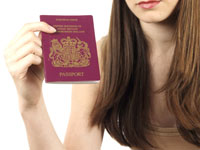
As many as 1,000 UK social workers could be travelling abroad every year to conduct “illegal” assessments, according to a charity that specialises in overseas work, writes Julie Griffiths.
Children and Families Across Borders (CFAB) has estimated that one in a 100 social workers are carrying out overseas assessments each year, the majority of them unaware they are doing anything wrong.
CFAB chief executive Andy Elvin said it was a combination of independent and council-employed social workers, both of whom were sent by local authorities, as well as officers from guardian’s body Cafcasss asked to go by the courts.
“It might be a court ordering an assessment and they don’t prescribe how it happens,” he said.
Local authorities often took this to mean they should send a social worker rather than working with CFAB, which would ensure assessments were arranged through the correct channels.
“Local authorities have no clue that what they are doing is actually not lawful. Social workers usually go on a tourist visa. But you can’t just go knocking on people’s doors and say, ‘I’ve come to assess you’,” he said.
If a social worker from overseas tried to practise in the UK without registration, it would be deemed unlawful, said Elvin. The same applied in other countries.
Colin Green, chair of the Association of Directors of Children’s Services families, young people and communities policy committee, said a common scenario was where a child in the care of UK local authority had a family member living overseas come forward to offer a home.
“Local authorities need to be sure about the suitability of such a placement and the ability of the carers to support the child’s needs, as they would with any placement in the UK. It is good practice to involve local agencies in the assessment process but quality and timeliness of assessment are the key concerns,” he said.
Elvin said that, while local authorities have a duty to ensure the child’s safety, they also have a duty of care to staff, which they were breaching by sending social workers overseas.
“There are basic problems like insurance that won’t cover a social worker if they go out to Ghana, for example, because they’re out of their jurisdiction,” he said.
Social workers were also at risk of personal harm when they travelled overseas to do an assessment, such as mugging, being shot or even kidnapped.
Green said that the legal complexities of assessing families overseas were the domain of the courts.
“The courts should be clear when making such a request about the legal circumstances, including whether the local authority can undertake assessments in the country in question,” he said.
Read more on “The dangers of conducting assessments overseas“
What do you think? Join the debate on CareSpace
Keep up to date with the latest developments in social care. Sign up to our daily and weekly emails
Related articles:
Family members and child can remain abroad during assessment
Inform subscribers:
Country profile: Guides on customs, childhood and legislation in countries around the world


 Bournemouth, Christchurch and Poole
Bournemouth, Christchurch and Poole  Hampshire County Council
Hampshire County Council  Lincolnshire County Council
Lincolnshire County Council  Norfolk County Council
Norfolk County Council  Northamptonshire Children’s Trust
Northamptonshire Children’s Trust  South Gloucestershire Council
South Gloucestershire Council  Wiltshire Council
Wiltshire Council  Wokingham Borough Council
Wokingham Borough Council  Children and young people with SEND are ‘valued and prioritised’ in Wiltshire, find inspectors
Children and young people with SEND are ‘valued and prioritised’ in Wiltshire, find inspectors  How specialist refugee teams benefit young people and social workers
How specialist refugee teams benefit young people and social workers  Podcast: returning to social work after becoming a first-time parent
Podcast: returning to social work after becoming a first-time parent  Podcast: would you work for an inadequate-rated service?
Podcast: would you work for an inadequate-rated service?  Family help: one local authority’s experience of the model
Family help: one local authority’s experience of the model  Workforce Insights – showcasing a selection of the sector’s top recruiters
Workforce Insights – showcasing a selection of the sector’s top recruiters 

 Facebook
Facebook X
X LinkedIn
LinkedIn Instagram
Instagram
Comments are closed.